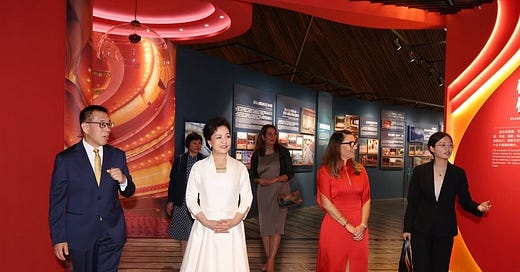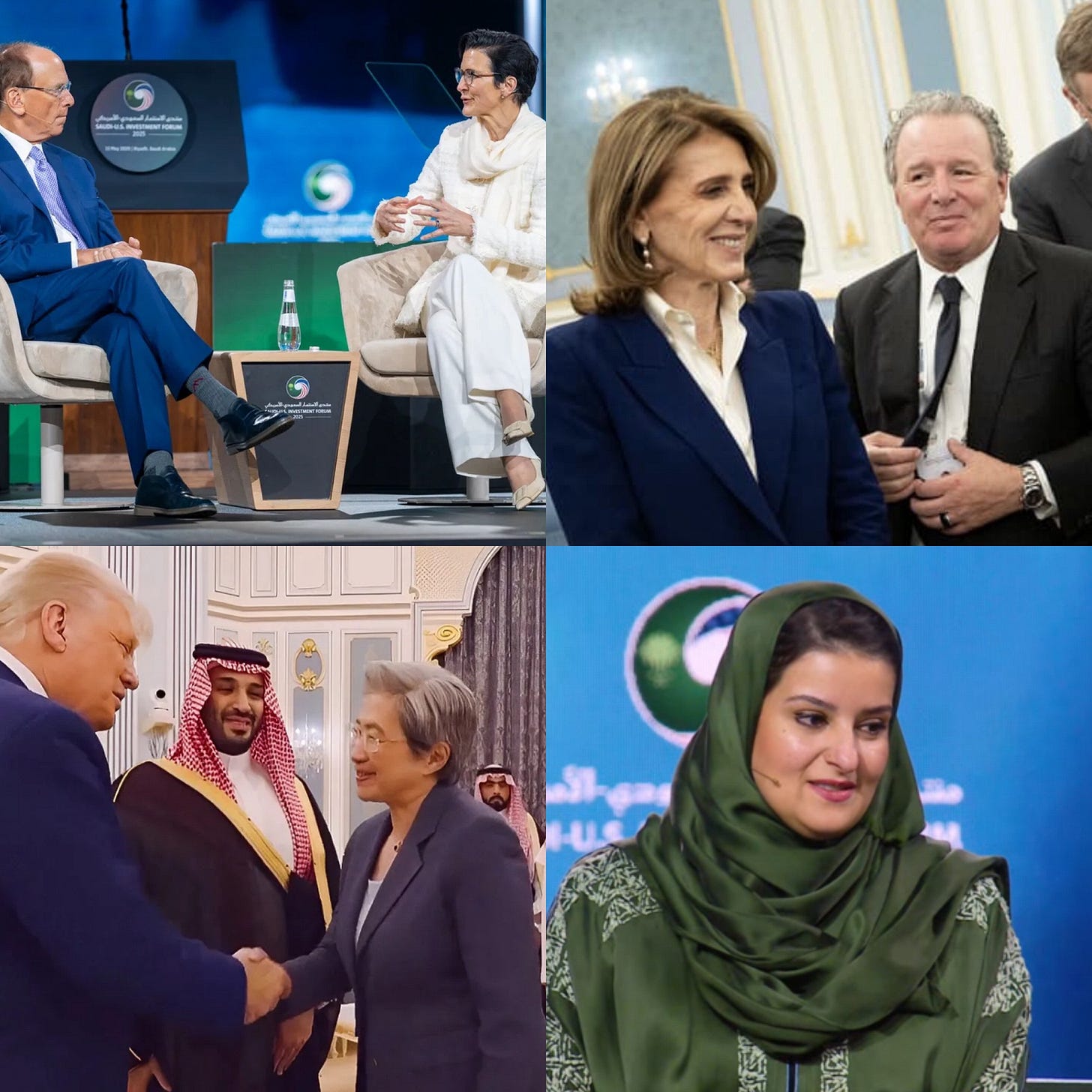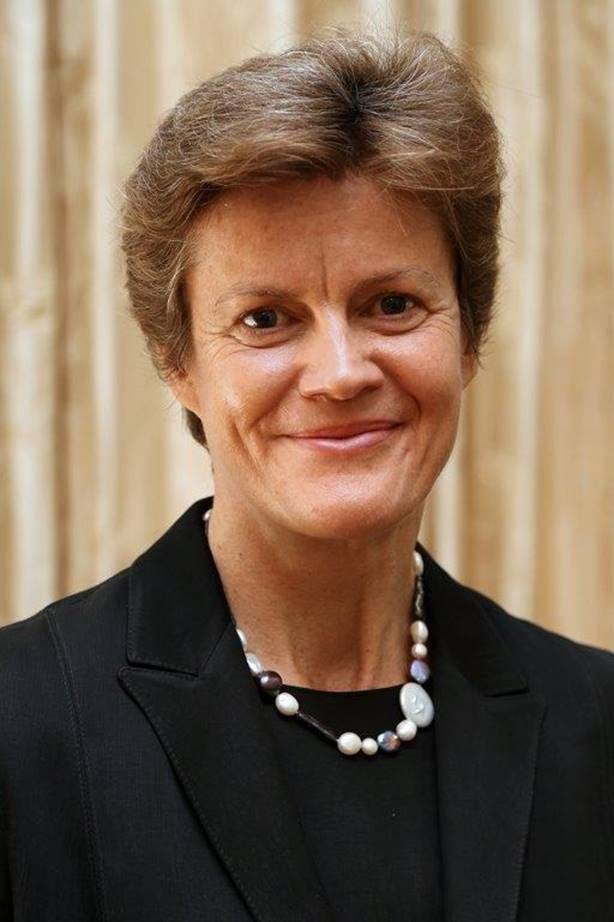New from The Chief Brief: A Weekly Brief
In addition to our signature fortnightly deep dives, we’re now bringing you a sharp global roundup every week—quick hits on the stories that matter.
Think of it as your world-in-a-minute cheat sheet. Keep an eye out. Stay sharp. Connect the dots.
What We’re Watching:
The power of storytelling across borders—from Rio to Beijing
Saudi’s growing tech and capital market play
AI’s rising carbon footprint across East Asia
Energy policy - potential pivots Down Under
The quiet shake-up at Britain’s spy agency
Brazil and China Strengthen Ties Amid Trade War Fears
As the U.S. courts the Middle East with protectionist overtones, Brazil and China are quietly deepening what they now call an “indestructible” partnership. President Lula arrived in Beijing with 11 ministers and 150 business leaders to pursue new trade, energy, and finance ties. He was soon joined by Colombia’s Gustavo Petro, Chile’s Gabriel Boric, and representatives from 27 other nations for the triennial China-CELAC Forum. Also present: Dilma Rousseff, President of the BRICS-led New Development Bank.
President Xi Jinping pledged a $9 billion credit line and expanded infrastructure investments in Latin America and the Caribbean. The Beijing Declaration issued after the summit calls for greater South-South cooperation and modernization, describing the Forum as a “key platform” amid a shifting global order.
In a moment of powerful soft diplomacy, Brazil’s First Lady Rosângela da Silva attended the Beijing premiere of I’m Still Here—the Oscar-winning film about Eunice Paiva, whose husband Rubens was “disappeared” by Brazil’s military regime in the 1970s.
“With its arrival in China, this film has truly conquered the world,” da Silva said. “It traveled 17,000 kilometers to tell a buried chapter of our history across more than 10,000 Chinese cinemas.”
China also granted visa-free entry to Brazilians and several other Latin American nationalities this week—signaling a deepening trust. A Chinese delegation recently visited Brazil to discuss large-scale infrastructure projects, including a railway linking Brazil to Peru’s megaport in Chancay.
Read more at The Guardian & at CGTN
Trump, Wall Street & Silicon Valley Meets Riyadh
As President Trump kicked off his first overseas trip of his second term, to coincide with the Saudi-US Investment Forum. C-Suiters from Google, Tesla, Citi, Nvidia, AMD, and BlackRock joined him in Saudi Arabia to discuss US-Saudi business partnerships.
• Jane Fraser, Citi CEO: “I think it’s wonderful—but also quite remarkable—what the Kingdom has done. Whether it’s tourism, life sciences, gaming or AI, this is no longer the U.S. advising Saudi Arabia. This is a mutual partnership.” Read more at Bloomberg
• Ruth Porat, Alphabet Chief Investment Officer: Highlighted Google’s new AI hub in Saudi and Accenture partnership for 2025.
Lisa Su, AMD CEO formed a $10 billion joint venture with Saudi’s new national AI company HUMAIN. Read more at Middle East Monitor
• Sarah Al-Suhaimi, Chair of Saudi Stock Exchange: “Saudi is now a reliable and investible destination,” citing the Kingdom’s Vision 2030 plan and a 20+ year partnership with Nasdaq.
Chips, AI & Carbon: Greenpeace Sounds the Alarm
Electricity consumption from manufacturing AI chips has soared by over 350% globally in just one year. And by 2030, global electricity demand for AI chipmaking is estimated to increase by as much as 170-fold from 2023 levels, exceeding the current electricity consumption of Ireland. That data is according to Greenpeace East Asia’s latest report — the first global estimate of emissions from AI chip production, highlighting an overlooked blind spot in the race to develop artificial intelligence.
According to Katrin Wu, Greenpeace East Asia’s Supply Chain Project Lead, the surge—driven by demand from companies like Nvidia and AMD—is being powered predominantly by fossil fuels, especially in East Asia’s chipmaking hubs like Taiwan and South Korea. Read more at Greenpeace
Australia’s New Opposition Leader Leaves Climate Targets Open
Sussan Ley has become the first woman to lead Australia’s Liberal Party, defeating Angus Taylor in a narrow vote. She says all policies are up for review after the Coalition’s election loss—including net zero targets.
Ley promised no “captain’s calls,” but backed her predecessor’s positions on national unity and Indigenous protocols. Nuclear advocate Ted O’Brien is her new deputy. Read more at SBS News
New Zealand MPs Face Suspension Over Haka Protest
Parliamentary tensions are rising in New Zealand, over tradition and representation. Three Māori MPs face suspension for performing a haka in protest last year. Lawmakers ruled the action could have “intimidated” others.
MP Hana-Rawhiti Maipi-Clarke faces a week-long suspension, while Māori Party co-leaders Rawiri Waititi and Debbie Ngarewa-Packer may be suspended for 21 days.
The Māori Party called the ruling a “warning shot to fall in line.” Read more at 1 News
MI6: Three Women, One Historic Seat
The race to lead Britain’s foreign intelligence service is down to three women—marking a historic shift for MI6, long led by men. Current chief Sir Richard Moore is set to step down in the autumn (or fall, for our American readers). The final selection is expected this summer.
Among the contenders:
• Dame Barbara Woodward, the UK’s Ambassador to the United Nations and former envoy to China. Critics in government have dubbed her “Beijing Barbara,” questioning whether she’s too soft on China.
• Two senior MI6 officers whose names are classified for national security reasons.
Read more at The Times
Femicide on Livestream
Valeria Marquez, a 23-year-old TikTok influencer, with more than 113,000 followers on the platform and at least 70,000 followers on Instagram. She was fatally shot during a livestream in Guadalajara. Authorities are treating it as femicide. The UN estimates 10 women or girls are murdered daily by partners or family members in the country. Marquez’s killing has reignited calls for better protection for women in public and digital spaces. Read more at Al Jazeera









